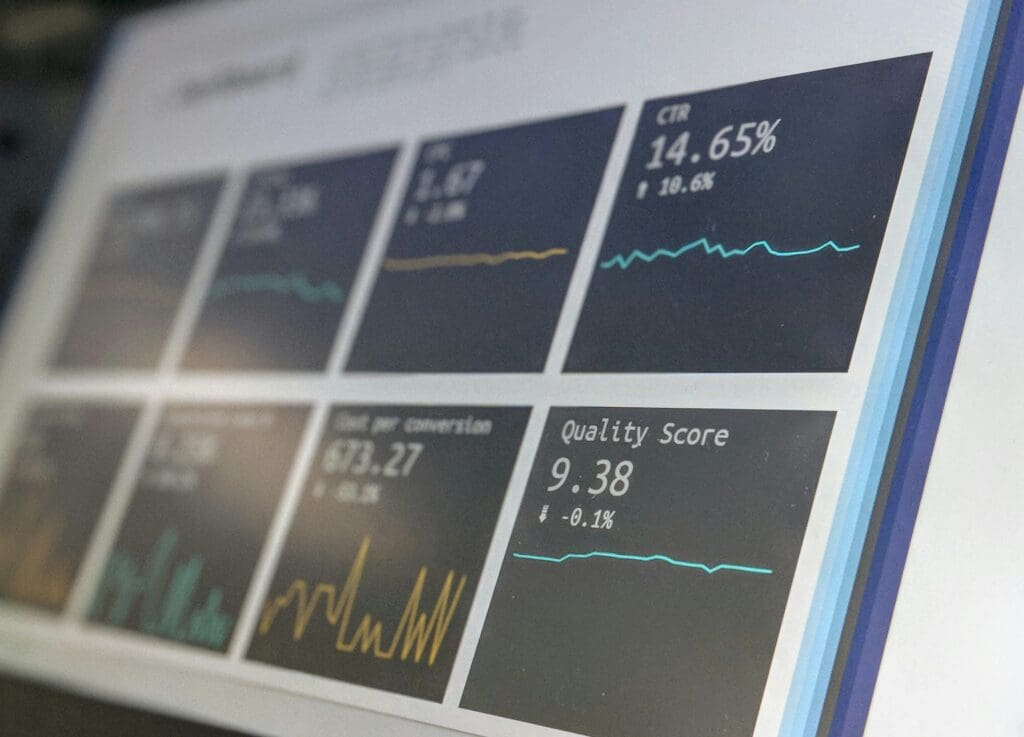Global Change
Navigating Regulatory Landscapes
Navigating complex regulatory landscapes and maintaining compliance is crucial for success in the healthcare and life sciences. Our team has extensive knowledge in quality assurance, regulatory affairs, computer system validation, manufacturing process validation, computer software assurance, and consent decree remediation, offering a comprehensive suite of regulatory and compliance services tailored to the unique needs of life sciences organizations. Our services allow our clients to focus on innovation, all while we help you manage the complexities of compliance with confidence and security.
Staying abreast of regulatory changes is not just important; it’s crucial. These changes, ranging from amendments in FDA regulations to updates in EMA guidelines, have far-reaching implications for professionals in the field. Being informed and prepared for these changes is critical to maintaining compliance and delivering safe, effective products and services.

Understanding Change
The life sciences industry has successfully navigated many challenges in recent years, but the regulatory landscape supporting these activities is undergoing significant transformations. As the industry continues to innovate, it becomes evident that existing regulations must evolve to remain relevant. Changes in clinical trial conduct, advancements in MedTech, and the escalating role of technology underscore the need for an agile regulatory environment that keeps pace with the industry and anticipates its future needs. We help our clients adapt to this dynamic environment.
Compliance Challenges
Biotechnology faces unique challenges in dealing with regulations as a critical life sciences component. The combination of cutting-edge biotechnological progress and strict regulatory standards requires careful management. Biotech companies operate in a dynamic and demanding regulatory environment. Overcoming these compliance challenges necessitates a proactive, strategic approach that balances innovation with regulatory compliance. By staying informed about regulatory changes, securing data, protecting intellectual property, and upholding ethical standards, biotech companies can effectively navigate these challenges, leading to sustained growth and groundbreaking advancements in the life sciences.”
We understand the unique challenges you face in the biotech industry and are here to provide the support you need to navigate them.
Biotech companies operate in a highly complex regulatory environment, dealing with a myriad of local and international regulations. This complexity introduces significant challenges in research, development, and commercialization. Non-compliance can result in severe consequences, including delays, fines, and prohibitions on market entry, which can stifle innovation and growth.
Protecting sensitive patient and proprietary research data is paramount in biotechnology. Data breaches can lead to severe legal consequences, reputational damage, and compromised research integrity. Ensuring robust data security measures and compliance with data protection regulations is critical to maintaining trust and safeguarding valuable information.
Adhering to stringent protocols and ethical standards in clinical trials is a formidable challenge. Non-compliance can invalidate data, result in legal repercussions, and delay product development. Ensuring meticulous adherence to clinical trial regulations is essential for successfully advancing biotechnological innovations.
Navigating the intricacies of patent laws and ensuring proper disclosure of inventions is crucial for maintaining a competitive edge. Inadequate intellectual property protection can result in the loss of exclusivity, allowing competitors to replicate or capitalize on research investments, ultimately undermining the financial viability of biotech innovations.
Compliance with GMP regulations in biopharmaceutical manufacturing is intricate and demanding. Non-compliance can lead to the release of substandard products, recalls, and regulatory actions. Maintaining high standards of manufacturing practices is essential to ensure product quality and patient safety.
While promising, genetic research raises significant ethical concerns about informed consent, privacy, and the potential misuse of genetic information. Violations can lead to legal consequences, erode public trust, and hinder collaborative research efforts. Addressing these ethical issues is vital for the responsible advancement of genetic technologies.
Managing complex global supply chains, including sourcing raw materials, presents substantial challenges. Disruptions can lead to production delays, affecting product availability and regulatory compliance. Ensuring a resilient and compliant supply chain is essential for the uninterrupted delivery of biotechnological products.
Monitoring the safety and efficacy of biotech products post-market is critical. Failure to adequately monitor and report adverse events can result in regulatory actions, recalls, and legal consequences. Implementing robust post-market surveillance systems is essential to product safety and regulatory compliance.
The rapid pace of innovation in biotechnology, particularly in emerging fields like gene editing, often outstrips regulatory development. Lagging regulations can create uncertainty, delays, and potential safety oversights. Proactively engaging with regulatory bodies to shape and adapt to new rules is essential for seamlessly integrating cutting-edge technologies.
Global collaborations in biotech are increasingly common, but they face challenges in aligning with diverse international standards. Discrepancies in regulations can hinder collaborative efforts, lead to inefficiencies, and create barriers to market entry. Harmonizing international standards is crucial for fostering global innovation and collaboration in biotechnology.
Significant Regulation Changes
The life sciences and biotech industry is undergoing a transformative era characterized by significant regulatory changes impacting every field facet. These changes, driven by technological advancements and a heightened focus on patient safety and transparency, necessitate a proactive approach from industry professionals. Staying informed and adaptable is crucial for navigating these evolving regulations and ensuring continued innovation and compliance. Below are some of the most impactful regulatory updates reshaping the landscape.
01
FDA Regulations
Understanding market dynamics and customer needs is not just important but vital. A comprehensive analysis of current market trends and key customer preferences allows companies to differentiate themselves in the marketplace. Expanding the range of products and services can drive revenue growth. Introducing new products or enhancing existing offerings to meet evolving customer demands can significantly boost sales. By prioritizing this aspect, companies can position themselves for sustainable growth and success.
As companies navigate evolving customer demands and market dynamics, they must also consider the regulatory landscape shaping AI-driven innovation. The FDA’s Draft Guidance on AI/ML in medical devices highlights the importance of balancing technological advancement with safety, efficacy, and compliance, offering a structured framework for integrating AI in healthcare applications.
02
EMA Guidelines
The European Medicines Agency (EMA) has substantially changed its transparency rules for clinical trials. These changes enhance access to trial information for patients and healthcare professionals by eliminating the deferral mechanism that allowed sponsors to delay data publication. Classifying trials into categories aims to provide early notifications and improve overall transparency, ensuring patients and HCPs are better informed.
03
EU Medical Devices Regulation (EU MDR)
Effective May 2021, the EU Medical Devices Regulation introduces a transitional period for manufacturers to comply with new regulations. This comprehensive framework emphasizes extended deadlines and rigorous quality management system requirements, aiming to enhance the safety and performance of medical devices across Europe.
04
EU Pharmaceutical Reform
The revised EU pharmaceutical package, published in April 2023, seeks to reform outdated legislation from 2000. This new framework focuses on enhancing affordability, accessibility, innovation, environmental sustainability, and combating antimicrobial resistance. These reforms represent a significant shift towards modernizing the pharmaceutical landscape in Europe.
05
FDORA (Food and Drug Omnibus Reform Act)
Enacted in December 2022, the Food and Drug Omnibus Reform Act (FDORA) empowers the FDA to accelerate approvals for medicines that meet specific conditions. This legislation has immediate implications for non-U.S.-based manufacturers importing medicines or medical devices into the U.S., streamlining processes and reducing time-to-market for critical products.
06
EU Pharmaceutical Reform
The revised EU pharmaceutical package, published in April 2023, seeks to reform outdated legislation from 2000. This new framework focuses on enhancing affordability, accessibility, innovation, environmental sustainability, and combating antimicrobial resistance. These reforms represent a significant shift towards modernizing the pharmaceutical landscape in Europe.
07
ISO 15189
The updated ISO 15189, released in December 2022, emphasizes patient-centricity, contingency planning, data control, and risk management. These updates have significant implications for compliance, particularly in enhancing the quality and reliability of medical laboratories.
08
ICH Q9 (R1)
Revised in January 2023, the ICH Q9 guideline offers clearer guidance on quality risk management. The revisions address formality, risk-based decision-making, and subjectivity, integrating Quality Risk Management (QRM) into regulatory and industry operations. This update aims to provide a more structured approach to managing quality risks, ensuring higher product safety and efficacy standards.
We assist your organization in fundamentally reassessing and retooling your compliance governance, culture, and business and risk operations. This includes aligning your compliance programs to the specific requirements of your industry, anticipating regulatory changes, and helping achieve industry-leading results.
Our team helps develop comprehensive compliance programs tailored to your organization’s needs. This includes creating policies and procedures, conducting training, and establishing monitoring mechanisms to maintain ongoing compliance.
We conduct thorough benchmarking exercises to compare compliance practices with industry standards and best practices. This helps identify gaps and areas for improvement, making your compliance programs effective and efficient.
For organizations under Corporate Integrity Agreements or facing consent decrees, we offer strategic guidance and practical support to achieve compliance and resolve regulatory actions. Our approach includes developing and implementing corrective action plans, training, and monitoring ongoing compliance.
In instances of alleged misconduct or noncompliance, we provide investigative services to uncover the root causes and scope of issues. We then assist in developing and implementing remediation plans to address the identified problems and prevent recurrence.
Post-remediation, we support your organization in maintaining compliance through continuous monitoring and improvement. This includes regular audits, updating policies and procedures as regulations evolve, and providing ongoing training and support.
Given regulatory bodies’ increasing emphasis on data integrity and cybersecurity, we help you develop and implement comprehensive data management and protection strategies. This includes maintaining data accuracy, consistency, and security throughout the product lifecycle and aligning with regulatory requirements such as FDA’s 21 CFR Part 11.
How we can help
Pharmaceutical, biotech, clinical laboratory, and medical device organizations must prepare for and manage a new surge of regulatory review and enforcement actions. Failing to comply with changing regulations can have serious consequences, including fines, criminal prosecution, and debarments. We can help you avoid these severe penalties and maintain your business’s reputation and operations.
We assist in evaluating business practices and overseeing programs to prevent issues before they occur. We can help you manage the potential consequences of alleged compliance failures when necessary. We assist in all phases of the regulatory compliance lifecycle, from developing a robust compliance program through benchmarking, investigation, remediation, and recovery in instances of misconduct or noncompliance. Our services are designed to address the challenges of recent regulatory changes, thus helping your business remain compliant and successful






